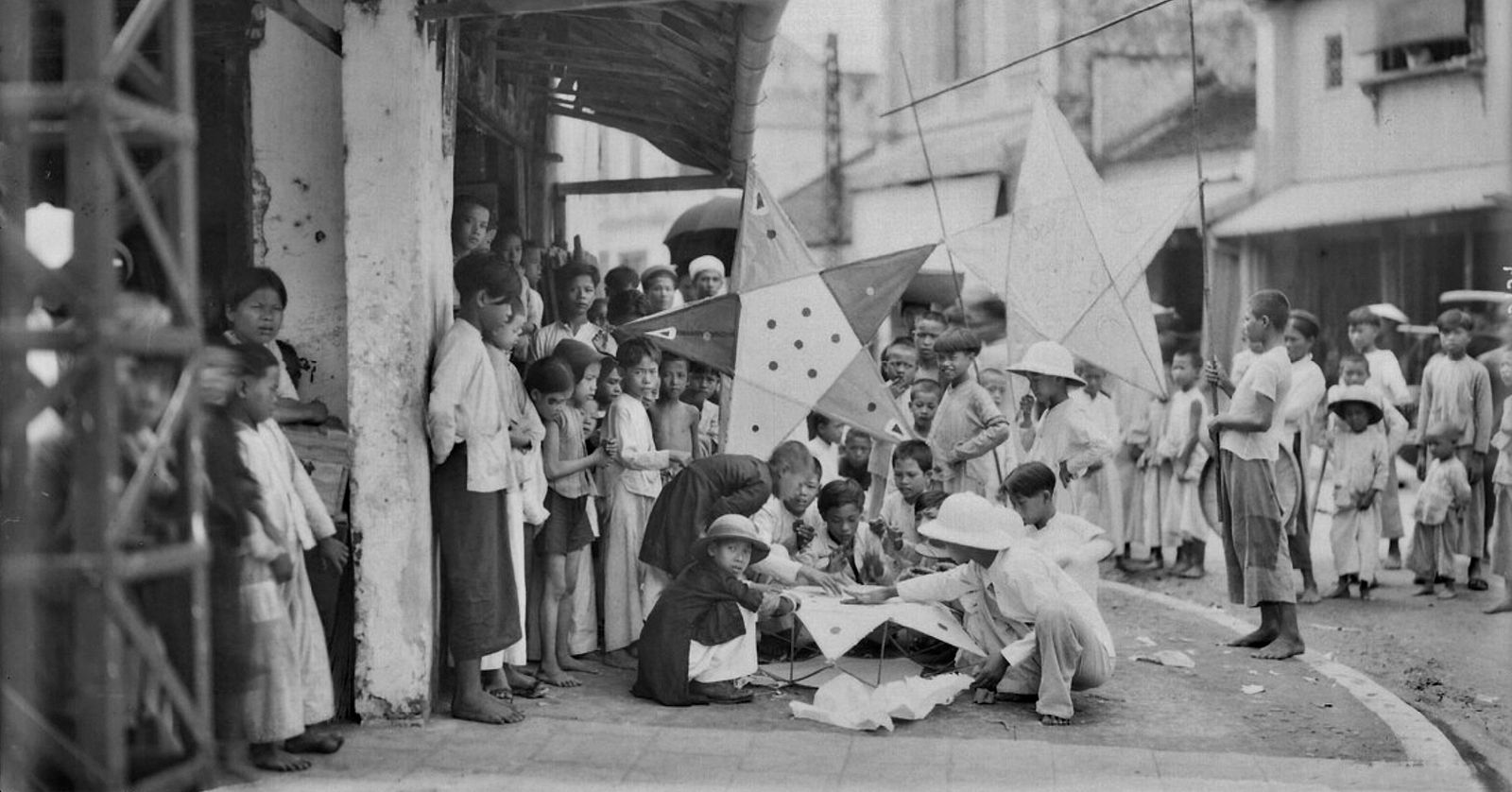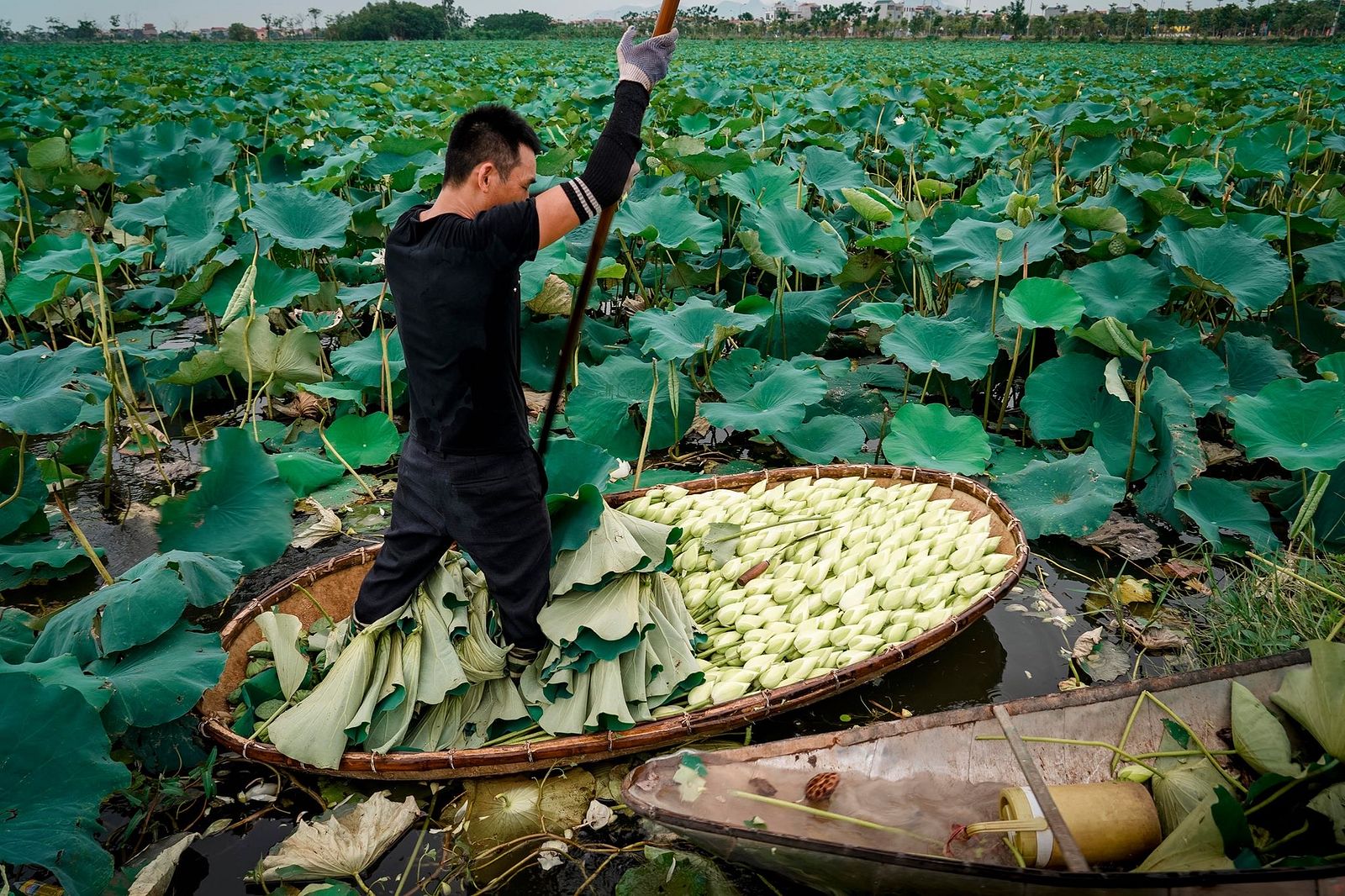Vietnamese folklore takes the old adage “beauty is only skin-deep” very seriously.
It’s no secret that at Saigoneer we have a soft spot for Vietnamese folk tales. These stories, which often involve a type of fruit or rice cake, reflect how our ancestors perceived various aspects of morality and ethics in a time when organized religion wasn’t a prevailing gatekeeper. Vietnam’s folk tales range from unabashedly sentimental and romantic – in the case of the origin story of the durian – or downright bizarre – like how an insolent girl was turned into a pineapple by a fairy for talking back to her mother.
Today’s installment of folk story retelling has a bit of both: a heartfelt tale of how good prevails over prejudice and greed, with a healthy dose of Vietnamese eccentric mysticism thrown in for good measure. The story of So Dua, meaning “coconut skull” in Vietnamese, chronicles the life of its titular character from his birth until his successful ascension to a royal mandarin:
Once upon a time, there is an old couple in their 50s who worked as servants for a noble family. Despite decades of trying and praying for a child, they always failed to conceive. On one sweltering summer day, the wife was looking for firewood in the local forest when she became overheated and thirsty. Desperate and delirious, she makes the bold decision to drink the water from a human skull under a tree trunk deep in the woods.
Like a godsend, the water is invigorating and leaves her feeling refreshed and revived. This would be a fantastic plot for a mineral water commercial if it weren’t for the consequence of her risky drinking: she soon finds out that she’s pregnant. During this time, the husband also passes away mysteriously.
Flash forward nine months when the lady goes into labor alone at home. To her absolute shock, she doesn’t give birth to a normal baby, but a deformed creature that’s as round as a skull but as hairy as a coconut. It has eyes, noses, a mouth and ears, but no limbs. Just when the distraught lady is about to discard the creature, it magically starts talking.
“Mom, I’m still a human, your son,” the baby begs. “Please don’t throw me away.” She immediately regrets her urge to toss it and begins caring for the creature, whom she names So Dua after the miraculous skull in the woods.
Aghast at So Dua’s appearance, the nobleman banishes the mother and So Dua to a hut in the middle of the field away from prying eyes, but still forces her to continue working for him. Every day after work, she saves a bit of rice from her lunch to feed him. So Dua grows rapidly into a smart and charming kid, despite his lack of humanoid figure. The neighbors have also become quite taken with him thanks to his sweet nature and kind demeanor.
Little do they know that So Dua is more than meets the eye. Every day after the mother leaves for work, he transforms into a real human and helps out with chores and just before she returns, he reverts back to his coconut form. Mind you, the mother notices the change in household conditions when she leaves So Dua alone, but in spite of her efforts to monitor him, she can't unravel his secret.
One night during dinner, the mother laments: “In other families, even kids at seven, eight years old are able to help out with herding and farming, but I can’t ask you to help with those tasks. The nobleman has dozens of goats, but I can’t find anyone to herd them.”
To her astonishment, So Dua happily suggests: “Mom, herding is fine. I can do it, please help me to tell the nobleman.” Both the mother and the nobleman are skeptical at first but decide to give him a chance. And lo and behold, So Dua turns out to be a sterling herdsman: every goat under his care slowly becomes healthy and his rather diminutive stature only requires two small handfuls of rice every day.
Every morning, So Dua lures the goats to a meadow far from the village, so the task of delivering him his rice falls to the nobleman’s three daughters. The older siblings are lazy and put off by So Dua’s appearance, so they tend to leave his lunch nearby and call out for him. The youngest daughter, who’s remarkably more kind-hearted than her sisters, always delivers his lunch in person and thus became the only person who knows about his real identity: So Dua is a not a mortal. He’s a demigod who’s healthy and handsome – young and sweet, only seventeen, as ABBA would put it.
There are times when she arrives without him realizing it because he’s too busy perching on a hammock playing his bamboo flute. Of course, So Dua is also a virtuoso; his songs are melodious, soothing, a beautiful addition to the poetic ambiance of the meadow. “Oh snap!” She slowly realizes that she’s falling for him. But can you blame her? So Dua’s a catch. Swipe right.
She starts treating him better by talking to him and sneaking delicacies from home to feed him. But the question is does So Dua return her feelings?
After a few months, one day, So Dua tells his mom that he thinks it’s time he gets married. He wants to ask one of the nobleman’s daughters for her hand in marriage. But which one? The mother thinks he’s joking: “No one will marry you! You’re round as a coconut and limbless, how can you even request that.” Obviously, the mother is not winning any award for supportive parenting any time soon, but she eventually relents once she realizes that he’s serious.
She makes a trek to the nobleman’s house with betel leaves and area nuts – must-have offerings in Vietnam’s traditional marriage rituals – to relay the message. The nobleman is visibly smug upon hearing So Dua’s bold claim. Still, he is intrigued.
“Tell him that if he manages to fulfill my dowry list, I’ll let one of my daughters marry him: a gold bullion, ten rolls of silk, ten pigs and ten bottles of rice wine. He’ll also have to build a brick house with five rooms, silver joists and bronze purlins.”
Deep down, the nobleman finds the thought of marrying his precious daughter into such a poor family distasteful, but he still wants to entertain So Dua by giving out a list of outrageous demands, knowing that he could never fulfill his wishes.
So Dua is unfazed by the ridiculous dowry list. He proudly thanks the nobleman for the opportunity and claims that he has all the requested items. Flabbergasted by his confidence, the nobleman reluctantly asks his daughter if any of them would consider marrying him. The two older daughters refuse in disgust, but the youngest daughter – having taken a liking to So Dua, knowing that he’s actually a handsome lad – sheepishly agrees.
Everything is going well for So Dua, to his mother and the nobleman’s surprise. They are still suspicious of his claim, of course, but they know to wait until the wedding date itself to either humiliate or get humiliated by the other party.
On the day of the wedding, the mother wakes up, shocked to find out that her rickety bamboo bed has been replaced by a king size silk one, complete with embroidered pillows and silk sheets. Their home has transformed into a five-room mansion with silver and bronze ornaments, just like the nobleman requested.
So Dua is there, still in his coconut form, ordering a team of helpers to prepare for his betrothal. The time comes for the young couple to wed and the nobleman is shook, but a promise is a promise. He has to accept the offerings and let his daughter marry So Dua. Everyone in the village enjoys the wedding feast from morning to late evening, when suddenly they realize that nobody can find So Dua.
From his bedroom emerges a handsome man, hand in hand with the young bride, smiling. “Greetings everyone, I’m So Dua,” the man says. “We are honored to greet you for the first time as newlyweds and we thank you for joining us in our celebration.”
The appearance of So Dua’s real identity brings joy to everyone, especially his mother and the neighbors. The two noble daughters can't believe their eyes and are insanely jealous of their lucky sister.
Usually, this would be a great point to conclude the story with an “and they live happily ever after,” but the story of So Dua is not just any story.
After the marriage, he wants to try his hand at being a student. Vietnam has always been heavily influenced by Confucianism, in which being a student is one of the most respected professions for adult males. So Dua spends months preparing for the next national exam and eventually scores the best among all candidates in his group.
The emperor gives him a post in his royal court as a mandarin and later, an envoy. Before going on his first major trip overseas, So Dua gives his wife a knife, two flint stones – the kind that can be easily used to start a fire – and two eggs. He instructs her to always carry these items with her in case something happens. So Dua’s prudence is rather suspicious because something does happen.
While So Dua is away, the two sisters convince his wife to go sailing with them as a way to strengthen their sisterly bonds. But little does she know that it is all a farce. They wait for her boat to reach the middle of nowhere in the ocean, hide its oars and sink it. After the vessel is completely submerged, they make a play of shrieking for help and grieving the youngest sister’s untimely demise.
A giant whale swallows the wife's entire, but she remembers her husband’s caution and kills the marine beast from within using the knife. The carcass floats to the surface and beaches on a deserted island. She pulls a Robinson Crusoe and butchers its carcass for sustenance: she dries some parts, pickles some and salts some for later.
She also uses the stones to create fire for warmth and cooking. The two eggs – which somehow manage to survive a shipwreck – hatch into a rooster and hen pair. She lives on the island for months with her pet chickens while waiting for passing ships.
One day, the wife is chilling on her private island that she gets for free – eat your heart out, Tom Hanks – when the rooster starts shrieking: “Cock-a-doddle-doo, if you’re the mandarin envoy, please take my master home.” She runs out of the house and spots a huge government ship, with So Dua standing on deck. After a tearful reunion, she tells So Dua the entire story of how she was betrayed by the sisters.
Though angered by the scheme, So Dua doesn’t confront the sisters right away. He hides his wife in his room and throws a major homecoming party, inviting his in-laws and the entire village. The sisters pull out all the stops to entice So Dua: tantalizing clothes, makeup and sweet flirtations. However, they both brush off the sister’s death as an unfortunate accident.
In the middle of the party, he excuses himself to go fetch a “friend” to introduce to everyone. Guess who: the youngest sister steps out from the dark in what would have been one of the most dramatic moments in reality TV history, had Vietnam had reality TV back then. The sisters are petrified in shame and shock. While everybody is busy celebrating the sister’s miraculous survival, they sneak out the door and run away from home, never to be seen again.
The story of So Dua ends on a happy note, much like most of Vietnam’s folk tales from the same period: karma always comes for the bad and the good are rewarded by heavenly forces. It remains one of the most well-known tales in the country’s folklore repertoire as a perfect combination of weird, heartfelt sentiments and family-friendly moral lessons.

















